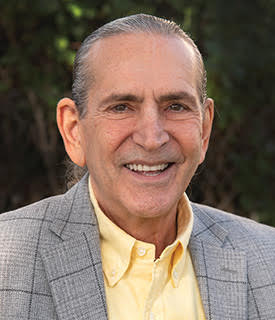What is Depression?
Depression, often referred to as clinical depression or major depressive disorder, is more than just feeling sad or going through a rough patch. It’s a serious mental health disorder that requires understanding and medical care. According to the American Psychiatric Association, “Depression affects an estimated one in 15 adults (6.7%) in any given year. And one in six people (16.6%) will experience depression at some time in their life.”
Depression impacts the brain, particularly areas associated with mood, sleep, and decision-making. When someone is depressed, chemical messengers in their brain called neurotransmitters can be imbalanced, leading to changes in mood and behavior.
Common Symptoms of Depression
Depression manifests differently in everyone, but common symptoms include:
- Persistent sadness or hopelessness
- Fatigue or lack of energy
- Difficulty sleeping, or oversleeping
- Changes in appetite or weight
- Feelings of worthlessness or guilt
- Loss of interest in hobbies or activities you once enjoyed
- Difficulty concentrating or making decisions
- Thoughts of death or suicide
If you or a loved one is experiencing any of the above, it may be time to seek treatment.
Types of Depression
Understanding the different types of depression may help you to understand how your depression started. This won’t necessarily lessen its impact, but it may help you to move forward.
Major Depressive Disorder (MDD): This is what most people think of when they hear “depression.” It involves experiencing a depressed mood for most of the day, nearly every day, for at least two weeks.
Persistent Depressive Disorder (Dysthymia): A chronic form of depression that lasts for at least two years, though symptoms might not be as severe as MDD.
Bipolar Disorder: Previously known as manic depression, it involves episodes of depression and periods of mania, or extreme energy.
Seasonal Affective Disorder (SAD): Depression that occurs during specific seasons, often in winter due to reduced light exposure.
Postpartum Depression: Experienced by some women after giving birth.
Premenstrual Dysphoric Disorder (PMDD): Severe form of PMS that includes depressive symptoms.
Atypical Depression: Depression that includes symptoms like increased appetite or weight gain, oversleeping, and a heavy feeling in the arms or legs.
Psychotic Depression: Depression accompanied by psychosis, such as hallucinations or delusions.
Situational Depression: Triggered by a life-changing event or situation.
Substance-Induced Mood Disorder: Depression that arises as a result of substance use or withdrawal.
Factors That Affect How Long Depression Lasts
Depression can be extraordinarily painful, so if you’re experiencing it, you may be wondering how long it will last. There’s no one way to determine when your depression may “lift” but several factors can influence its duration.
Factors that can speed up recovery include:
- Early Intervention: Recognizing and treating depression early can reduce its duration.
- Treatment: Sticking to prescribed treatments can significantly influence recovery time.
- Types of Treatment: Some treatments may be more effective for certain individuals.
- Support System: A strong support system can play a crucial role in recovery.
- Resilience and Coping Skills: Effective coping mechanisms can shorten the duration.
- Motivations for Recovery: A strong desire to get better can speed up recovery.
Factors that can lengthen recovery time can include:
- Severity: More severe depression might require longer treatment.
- Co-Occurring Conditions: Other mental health disorders can extend recovery time.
- Stressors and Life Events: Ongoing stress can prolong depression.
- Genetics and Biological Factors: Some people might be more predisposed to longer episodes.
- Previous Episodes: Past episodes can influence the length and severity of future ones.
Additional Things To Consider
Can you go back to normal after depression?
Yes, with the right treatment and support, many people return to their regular lives. Reach out to Crownview today, and we can help you get started.
Does depression go away?
It absolutely can. While some might have recurrent episodes, others might experience it only once in their lifetime. Treatment can make a huge impact on depressive symptoms.
What causes depression?
There’s no one cause. Depression is often a combination of genetic, biological, environmental, and psychological factors.
How long does it take for depression treatment to work?
It varies, but many people begin to feel better within a few weeks to a few months of starting treatment.
Is it possible to have depression even if I don’t feel sad all the time?
Absolutely. Depression can manifest as irritability, fatigue, or other symptoms. Reach out to us at Crownview to learn more.
How can I help a loved one who is struggling with depression?
Listen to them, offer support, and encourage professional help. Accept that you may not be able to help them yourself. The key is to allow them to feel their feelings while encouraging treatment.
Can children and teenagers experience depression?
Absolutely. Depression is not limited by age, and can be exacerbated by social and academic pressures.
How long does depression last without treatment?
It’s impossible to say, but treatment can significantly improve recovery time.
When to Seek Professional Help for Depression
If you or someone you know is exhibiting signs of depression, especially thoughts of death or suicide, it’s crucial to seek help immediately. Untreated depression can persist indefinitely and may lead to more severe outcomes. It’s essential to recognize the signs and intervene early.
Treatment Options for Depression
Does major depressive disorder go away? With the right treatment, it can.
At Crownview, we offer a holistic approach to treating depression, incorporating therapy, medication management, and lifestyle interventions. Our experienced team provides individualized care plans tailored to each person’s needs, ensuring the best chance at recovery. We offer innovative clinical therapies, cognitive behavioral therapy, and more holistic therapies to help you move from depression to hope.
Final Thoughts
Suboxone is a safe and effective treatment for most people going through opioid withdrawal. If you are ready to take the first step of your sobriety journey, Crownview Medical Group is a certified and registered suboxone provider. Our caring, qualified staff can support you the entire way from detoxification to long-term relapse prevention. Contact us today and learn more about how we can help you.
























